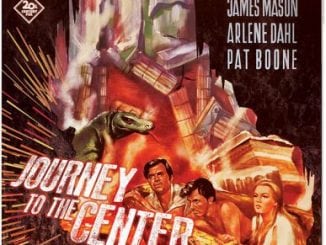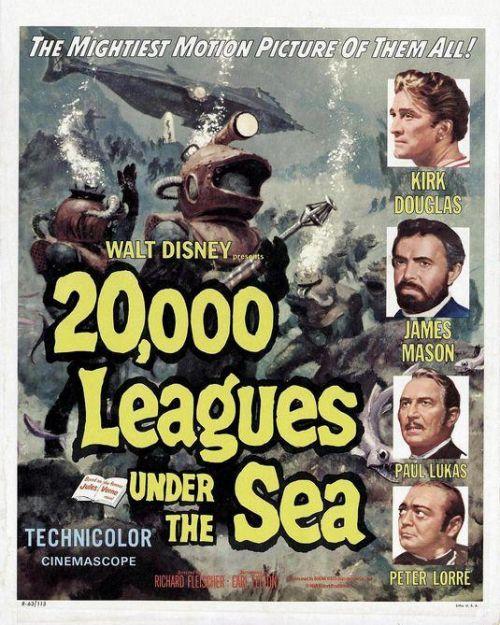HCF may be one of the newest voices on the web for all things Horror and Cult, and while our aim is to bring you our best opinion of all the new and strange that hits the market, we still can not forget about our old loves, the films that made us want to create the website to spread the word. So, now and again our official critics at the HCF headquarters have an urge to throw aside their new required copies of the week and dust down their old collection and bring them to the fore….our aim, to make sure that you may have not missed the films that should be stood proud in your collection. With TV’s Sherlock proving to be another great success in its second time round, Dr Lenera thought it was time to examine, for the next four weeks, some cinematic incarnations of the great detective. The first of these, all of which are not based on any of the original stories, pits him against Jack The Ripper, though you may know its basic plot from another film, the 2001 From Hell!
HCF REWIND NO.32. MURDER BY DECREE [1979]
AVAILABLE ON DVD
DIRECTED BY: Bob Clark
WRITTEN BY: John Hopkins
STARRING: Christopher Plummer, James Mason, David Hemmings, Susan Clark
RUNNING TIME: 124 mins
REVIEWED BY:Dr Lenera, Official HCF Critic
SPOILERS IN THE SECOND PARAGRAPH!

London: 1988. While at a visit to the opera, Sherlock Holmes and Dr Watson witness the Prince Of Wales being heckled for arriving late. Holmes cannot understand why, despite Jack The Ripper having slaughtered three prostitutes, the police have not asked for his assistance. When concerned Whitechapel shopkeepers send a delegation to 221B Baker Street to ask him to catch the killer who is ruining their businesses, Holmes and Watson begin their investigation. After a fourth dead victim has been found, Holmes discovers the stem from a bunch of grapes near the body and a strange woman witnessing the proceedings. Police Commissioner Charles Warren warns Holmes off the case, and orders the removal of some anti-Jewish writing removed from a nearby wall, but Holmes uncovers the writing, and, hearing that a medium called Robert Lees has supposedly seen the Ripper, proceeds with his investigation, even when one of his informants is murdered by the Ripper.……… 
There has been constant debate as to the identity of what could very well be the world’s most famous serial killer, Jack The Ripper. Certain theories refuse to go away though, and one of the most enduring is that the Royal Family was intimately involved. The basic idea is that Queen Victoria’s grandson Prince ‘Eddy’, the Duke Of Clarence, secretly sired a child, Alice, with Annie Crook, a ‘commoner’ who was also a Catholic. The Queen instructed the Prime Minister Lord Salisbury to deal with the matter, and so, while Annie was incarcerated in an asylum and lobotomised, a search was began for Alice, who had been hidden by her nanny, Mary Kelly, she having fallen into prostitution. In the process four of Mary’s associates and eventually Mary herself were murdered in a manner derived from Masonic ritual, in the hunt for the child by the Queen’s physician William Gull, who was aided by a coachman John Nettley. Now this theory,which first appeared in a 1973 TV dramatisation, has since been discredited, but this didn’t stop it from being reused in From Hell, which also made use of the real-life detective Frederick Abberline who investigated the Ripper, and of course the 1988 TV series also implicated Gull. Whatever its validity, it’s a fascinating, disturbing and plausible one, and, while I can’t really call myself a conspiracy buff, it makes you wonder if other people since may have been gotten ‘rid of’ by the Crown……..though at the risk of opening up a can of worms I will say no more about that!
Murder By Decree is therefore an intriguing watch, though it is in many ways better as a Jack The Ripper movie than a Sherlock Holmes one. The genius idea of pitting The World’s Greatest Detective against the Ripper was also the subject of an earlier film, 1965’s A Study In Terror, an enjoyable movie in its own right, and one which explored aristocratic links to the killings but didn’t go much further. Murder By Decree was a mostly Canadian-financed project directed by Bob Clark, the very talented helmer of Black Christmas who after a few striking horror films mysteriously turned to making crap like Porky’s [I mean those films are fun as a teenager but just seem embarrassingly bad now!]. Originally Peter O’ Toole and Laurence Olivier were intended to play Holmes and Watson but neither wanted to work with the other. Still,Christopher Plummer and James Mason were fine replacements, and the film was packed with probably the best cast of a Holmes film, including David Hemmings, Donald Sutherland, Genevieve Bujold, John Gielgud, Anthony Quayle and Frank Finlay, the last having appeared in A Study In Terror with Finlay playing the same role of Inspector Lestrade. Murder By Decree was mostly received well, especially in Canada where it won awards, though many found the unconventional interpretation of Holmes not to their liking.
Adroitly setting out an element of class conflict in its initially pointless-seeming opening scene, the plot proceeds at a leisurely pace, and perhaps far too leisurely for some, with maybe too many characters and disparate elements. Scriptwriter John Hopkins doesn’t allow Holmes to do much in the way of his famous deduction – you know, when he can see a man and instantly know where he’s been, how many children he’s got and what he had for dinner – and even has a psychic, in an especially pointless subplot, point him in the right direction. In fact, I would go as far to say that Holmes, who ends up inadvertently helping the Ripper, is quite incompetent in this particular story. This subversion of our usual expectations of Holmes isn’t really much different from making him into an action hero in the recent Guy Ritchie flicks, and, while I personally wish Holmes would do more in Murder By Decree, I admire that something new was done with the character. Plummer, for the most part, plays him in a very restrained way, with none of the usual aloofness, coldness and elements of cruelty; while he may not be Arthur Conan Doyle’s Holmes, he’s very likeable, and even shows a pleasing sentimental side when he visits Annie Crook and sees her plight, causing him to lash out at a warden and cry. Needless to say, there’s no drug taking by this Holmes, who can still be a tough guy when he has to be; he’s especially mean with his lengthy, Tom Baker Dr Who-like scarf!
The Ripper scenes in this movie have a really creepy atmosphere, making fantastic use of deserted streets, eerie music and subtly exaggerated sound effects. The carriage of the killer is usually seen in slow motion, moving like a ghost through the night, and while the brutality isn’t dwelt upon, some images have a really nightmarish quality. The truly bloody murder of Mary Kelly, during most of which she is alive [a truly nasty touch] is glimpsed through a dirty window, so you only see vague details, but your mind fills in the rest. The film actually bravely climaxes with a lengthy dialogue sequence where Holmes confronts the Prime Minister and others; it’s a tour de force piece of acting by Plummer, brilliantly impassioned here, and ultimately very sad. The whole film has an uncompromising edge; for a start, these prostitutes certainly don’t look all clean and brushed up unlike many other films. Nobody wins in this film, neither the good guys nor the bad guys, and its powerful portrayal of a world where corruption is everywhere, even right at the ‘top’, rings very true. The only real ‘light’ in the film is the friendship of Holmes and Watson, wonderfully encapsualted in a hilarious [in a film with little humour] bit where Holmes helps Watson eat a pea.
James Mason rewrote that scene, as well as another, to make his Watson less bumbling and less of an aide to Holmes; this Watson is certainly no comic relief and is certainly Holmes’ equal; in fact, he achieves more than Holmes does, though he comes across as being a bit to world weary for my liking. The score by Paul Zaza and Carl Zittrer is very restrained, mostly opting for long-held notes and simple motifs which really get under your skin, though a respite from this is supplied by a lovely theme which musically evokes the friendship between the two heroes. Murder By Decree has some major flaws in its construction but is overall a fine combination of mystery, horror and theorising that, even if you rubbish what it suggests, will still probably make you think. As to how it compares to From Hell, it’s hard to say which is better. From Hell is a far more stylish, visceral experience, but Murder By Decree somehow feels more convincing to me, despite it featuring a hero who did not actually exist, and its more restrained approach perhaps makes more of a long-time impression.







Be the first to comment